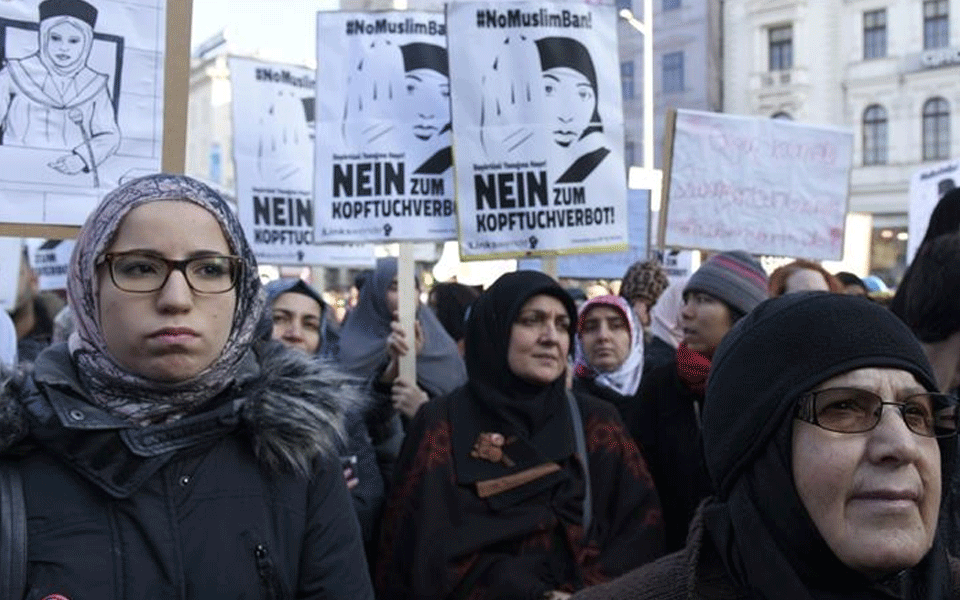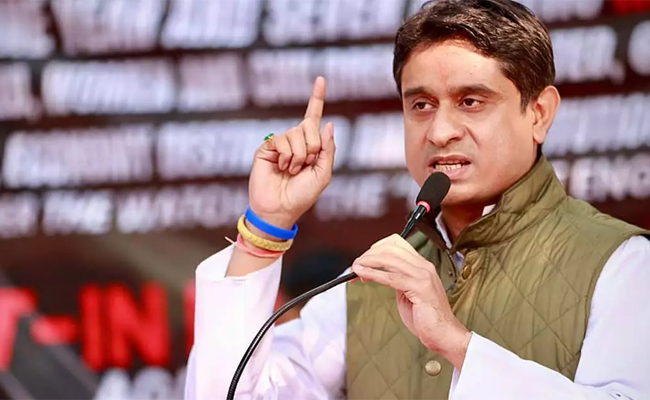Vienna: Austrian MPs on Wednesday approved a law aimed at banning the headscarf in primary schools, a measure proposed by the ruling right-wing government.
So as to avoid charges that the law discriminates against Muslims, the text refers to any "ideologically or religiously influenced clothing which is associated with the covering of the head".
The government says the patka head covering worn by Sikh boys or the Jewish kippa would not be affected.
However, representatives of both parts of the governing coalition, the centre-right People's Party (OeVP) and the far-right Freedom Party (FPOe), have made it clear that the law is targeted at the Islamic headscarf.
FPOe education spokesman Wendelin Moelzer said the law was "a signal against political Islam" while OeVP MP Rudolf Taschner said the measure was necessary to free girls from "subjugation".
Austria's official Muslim community organisation IGGOe has previously condemned the proposals as "shameless" and a "diversionary tactic".
The IGGOe says that in any case only a "miniscule number" of girls would be affected.
Opposition MPs almost all voted against the measure, with some accusing the government of focusing on garnering positive headlines rather than child welfare.
The government admits that the law is likely to be challenged at Austria's constitutional court, either on grounds of religious discrimination or because similar legislation affecting schools is normally passed with a two-thirds majority of MPs.
The OeVP and FPOe formed a coalition in late 2017 after elections in which both parties took a tough anti-immigration stance and warned of the dangers of so-called "parallel societies"
Let the Truth be known. If you read VB and like VB, please be a VB Supporter and Help us deliver the Truth to one and all.
Washington (AP): An operations centre targeted by an Iranian drone strike that killed six American soldiers on Sunday was located in the heart of a civilian port in Kuwait, miles away from the main Army base, according to satellite images and a US official.
The husband of one of the slain soldiers, who was part of a supply and logistics unit based in Iowa, told The Associated Press on Tuesday that the hub was a shipping container-style building and had no defences.
The development, reported earlier by CNN and CBS News, raises questions about the safety precautions that the US military had in place as it, along with Israel, launched an attack on Iran, which has responded with retaliatory strikes against several countries in the region, including Kuwait.
President Donald Trump and top defence leaders say more American casualties are likely.
Defence Secretary Pete Hegseth said Monday that the six soldiers were killed in a “tactical operations centre” when a projectile made its way past air defences. A day later, the Pentagon confirmed it was a drone strike in Port Shuaiba when announcing the names of four of the soldiers who were slain.
A satellite image taken Monday and reviewed by the AP showed the main building in the complex destroyed, with a trail of black smoke rising from it. It is located in the heart of Port Shuaiba, a working seaport and industrial area just south of Kuwait City. The US official, who spoke on condition of anonymity to discuss a matter under active investigation, confirmed the image depicted the location of Sunday's attack.
The Army base, Camp Arifjan, is more than 10 miles to the south. The operations centre was just a little over a mile from some of the piers where merchant ships would offload cargo containers and was surrounded by oil storage tanks, refineries and a power plant.
Joey Amor, husband of Sgt 1st Class Nicole Amor, said his wife was moved off-base to what he described as a shipping container-style building a week before the Iranian strike. The 39-year-old from White Bear Lake, Minnesota, was one of the soldiers killed in the attack.
“They were dispersing because they were in fear that the base they were on was going to get attacked, and they felt it was safer in smaller groups in separated places,” he said.
After news reports about the operations centre emerged, chief Pentagon spokesman Sean Parnell said on social media that the “secure facility was fortified with 6-foot walls.” He said the military has “the most extensive Air Defence umbrella in the world over the Middle East right now and control of the skies is increasing with every wave of airpower.”
Parnell's office did not respond to questions about what role the walls would have played in defending against a drone attack or what air defences were present in range of the command centre at the port.
Capt Tim Hawkins, a spokesman for US Central Command, said “it would be inappropriate to comment given the incident is under investigation.”





